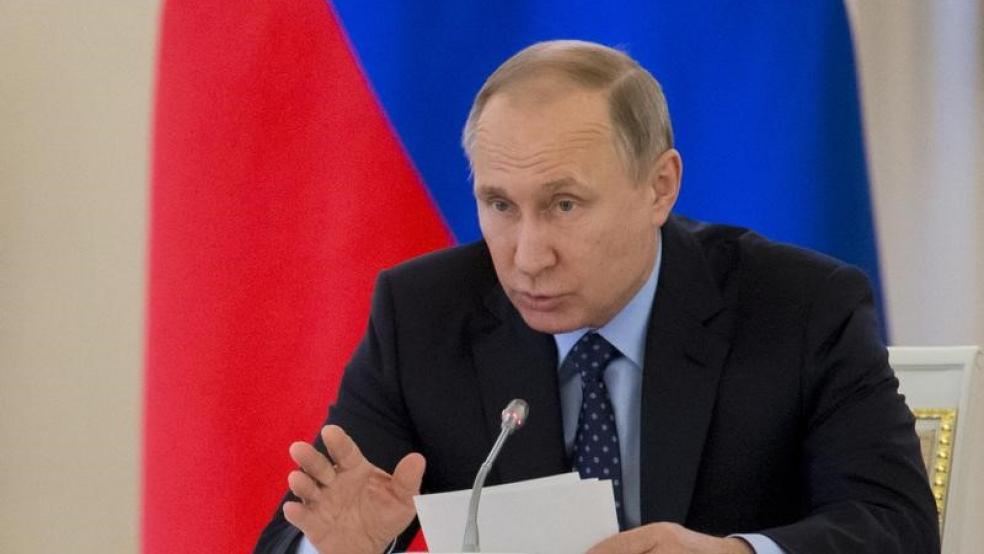Russian citizens woke this morning to the surprising news that the country’s central bank, sometime after midnight, had announced an increase in the country’s key short-term interest rate from 10.5 percent to 17 percent. The news came just two business days after the bank had raised rates a full percentage point from 9.5 percent.
The moves were part of Russia’s effort to support the plunging ruble, which has lost nearly half its value against the dollar this year, including another 10 percent drop on Monday. The Russian currency, due to a combination of sharply lower oil prices and a raft of international sanctions that followed Russia’s invasion of Ukraine’s Crimean peninsula over the summer and its ongoing support of rebels in Eastern Ukraine.
Related: Putin Urges Oligarchs, Criminals to Bring Dirty Money Back to Russia
Monday’s decline marked a record low for the ruble, on the same day that the central bank warned that the Russian economy could shrink by nearly 5 percent in 2015.
With its central bank in panic mode and international markets dubious about its economic future, Russian President Vladimir Putin’s government made the obvious choice: It sent Foreign Minister Sergei Lavrov out in front of reporters to suggest that Russia might move nuclear weapons onto the Crimean peninsula.
“Crimea has now become part of a country that has such weapons under the Treaty on the Non-Proliferation of Nuclear Weapons,” Lavrov told the Interfax News Service. “And by international law, the Russian state has all grounds to dispose of its legitimate nuclear arsenal in accordance with its interests and in accordance with its international legal obligations.”
Related: Putin’s Ruble Troubles Start Crossing Borders
“The term 'nuclear-free zone' has never been used for Crimea,” added Lavrov.
The decision to float the provocative notion of moving nuclear weapons into Crimea came just days after officials in Denmark and Sweden reacted with outrage to news that a Russian military plane, flying without its identifying transponder turned on, came alarmingly close to a passenger jet taking off from Copenhagen.
The near miss was only the latest in a long series of incidents in which Russia has been flexing its military muscle at the expense of its neighbors. Various Northern European countries have reported airspace violations by Russian military jets and other incursions by sea and by land. Estonia continues to claim that one of its law enforcement officers was kidnapped during an investigation near the Russian border.
The current political and economic situation in Russia is, to say the least, volatile. Putin’s government has presided over a major economic collapse, but at the same time has stoked nationalist passions with the contested annexation of Ukraine and increasingly bellicose rhetoric toward the West in general.
Related: 5-Year-Low Oil Price Plunge Adds Pressure on Putin
Why This Matters: The deteriorating Russian economy might be viewed as a local, or perhaps regional, problem, except for the increasingly militaristic behavior of the Russian government. The fact that on the same day that the central bank announced a radical interest rate hike the Russian foreign minister raised the specter of nuclear proliferation in Europe suggests a disturbing return to Cold War defense postures.
His standing among the Russian public remains strong, but as the ruble falls, imports are becoming prohibitively expensive for Russians, who have in recent decades become accustomed to access to foreign goods.
How long the Russian people will continue to support Putin — or what steps the government might take, either military or economic, to distract attention from a deteriorating economy — remain some of the biggest questions facing Northern Europe right now.
Top Reads from The Fiscal Times:





